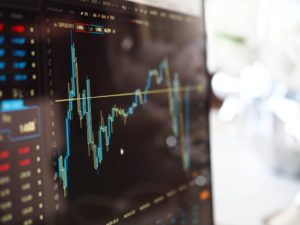
Kiwisaver Retirement Savings Scheme
“A good man leaves an inheritance to his children’s children.” Proverbs 13:22
Saving for one’s retirement is the responsible thing to do and it is up to each individual to get their own finances sorted for their latter years. New Zealand has their own retirement scheme as most other countries do to help make life easier for their citizens when they retire.
The New Zealand retirement scheme is called “kiwisaver.” It is open to New Zealand residents. Kiwisaver is voluntary and anyone aged up to 65 can join. You do not have to be in work to join kiwisaver, you are able to make voluntary contributions at any time.
You are about to make contributions through your wages and salaries of between 2%, 4%, or 8% (you choose). Your employer will also make contributions to your kiwisaver account. If you are not employed then you can choose to make voluntary contributions.
The key component of kiwisaver is the government’s contribution which is a maximum of $10 per week or $520 per year but you have to contribute at least $1040 per annum to get the full $520 otherwise you the government will put in 50% of whatever is your contribution.
You will receive the government money sometime in July. The kiwisaver year starts 1st July and ends 30th June and any money deposited into your kiwisaver account during this period will be eligible for the government contribution the following July. You could say leave it until June before you put any money in kiwisaver and still be eligible for the tax credits as the government money is sometimes called.
When joining KiwiSaver you will be given the choice of fund managers. If you do not choose one, the I.R.D (Inland Revenue Department) will choose one for you and when this happens, it tends to lean on the more conservative side.
You have the option of different funds, Growth, Balanced, or Conservative with growth funds being aggressive. They have the potential to grow your savings but the downside is that they are the most risky. Conservative funds are low risk but can inhibit the growth of your savings while balanced funds are a combination of growth and conservative funds.
Your savings in kiwisaver are locked in until you reach the retirement age of 65 (applicable in NZ) but you may be able to access your funds under exceptional circumstances. These are if you are suffering from financial hardship, have a terminal illness, or die (money goes to your estate). It is important that you have a will because if you don’t, any money still in your kiwisaver will likely be swallowed by lawyer’s fees.
You may use some of your kiwisaver funds for a deposit on your first home but only after you have been in kiwisaver for at least five years. If you are at that stage where you will be looking at purchasing your first home in the not too distant future then it would be a good idea to go for a combination of balanced and conservative funds when choosing which type of kiwisaver fund to invest in because if you went for growth funds, the markets may have gone down when it comes time to withdraw some of your kiwisaver funds for a home deposit. That would be a double whammy because when the market recovers and is on the up, you have missed out on the gains because you withdraw your money when the market was down.
It is a good idea though to have other investments which can take advantage of the swings and roundabouts of the markets even if you only have a small amount to invest.
Always try to keep up to date with what is going on in the financial world as this will increase your financial literacy and help you make better decisions on your finances.
Check out my site www.robertastewart.com for useful information on how to increase your wealth.
The information in this article is the writer’s opinion and experience. It is advisable to seek independent financial advice to ascertain the best financial plan for your situation.













